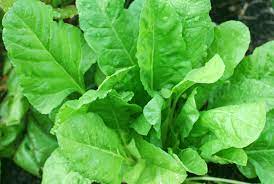
Firstly, introducing Auscrops, a high-tech market vending company bridging farmers and customers together through market vendors. Click here to find out more about Spinach Growing as well fruit and vegetable offers.
Spinach Growing
Gardening, a hobby that many cherish, offers tranquillity and satisfaction. Among the diverse plants one can cultivate, a particular leafy green stands out for its simplicity and benefits. Furthermore, this green doesn’t just offer a burst of nutrients but also a sense of accomplishment.
Why Choose Spinach?
Well, for starters, this plant is versatile. You can add it to salads, stir-fries, and smoothies. Additionally, it’s a resilient grower, which means even novice gardeners can enjoy success. Moreover, it’s compact, making it suitable for both gardens and pots.
Getting Started
- Choosing the Right Seed: There are various types available. Nonetheless, for beginners, baby varieties might be the best option.
- Picking a Location: It needs a spot with moderate sunlight. Too much sun might harm it.
- Soil Preparation: Loamy soil with good drainage is ideal. Furthermore, a pH between 6.0 and 7.5 is preferred.
Planting Process
Sowing the Seeds: Space them about 3 inches apart. Additionally, they should be set 1/2 inch deep in the soil. Watering: Ensure the soil remains consistently moist but not soggy. Germination: With proper care, you should see sprouts in a week or so.
Pest Management
A concern for many gardeners is pests. Slugs and snails have an affinity for this plant. Nonetheless, natural remedies like diatomaceous earth can deter these pests. Additionally, ensure you inspect leaves regularly.
Harvest Time
Arguably the most rewarding part! When leaves are big enough to eat, they’re ready. Typically, this occurs 6-8 weeks after planting. Furthermore, picking outer leaves first allows the inner ones to mature.
Beyond the Garden
After harvest, the journey doesn’t end. You can enjoy your produce in countless dishes. Additionally, for those looking to store it longer, blanching and freezing is an option.
Perks of Homegrown Produce
Growing your greens comes with numerous benefits. For one, you’re in control. This means no pesticides or harmful chemicals. Additionally, the freshness is unbeatable. Every bite is a testament to your effort and nature’s magic.
Spinach and Sustainability
Gardening, as a practice, promotes sustainability. By growing even a small portion of your food, you reduce carbon footprints. Additionally, it serves as a haven for beneficial insects, promoting biodiversity.
In Conclusion
Embracing gardening can be transformative. It connects you to nature, offers therapeutic benefits, and produces delicious results. This particular green leafy plant, being easy to grow and packed with benefits, can be your ideal start. So, grab those gardening tools and let nature surprise you.
Click here to read similar articles.
 Français
Français 












Comments are closed.